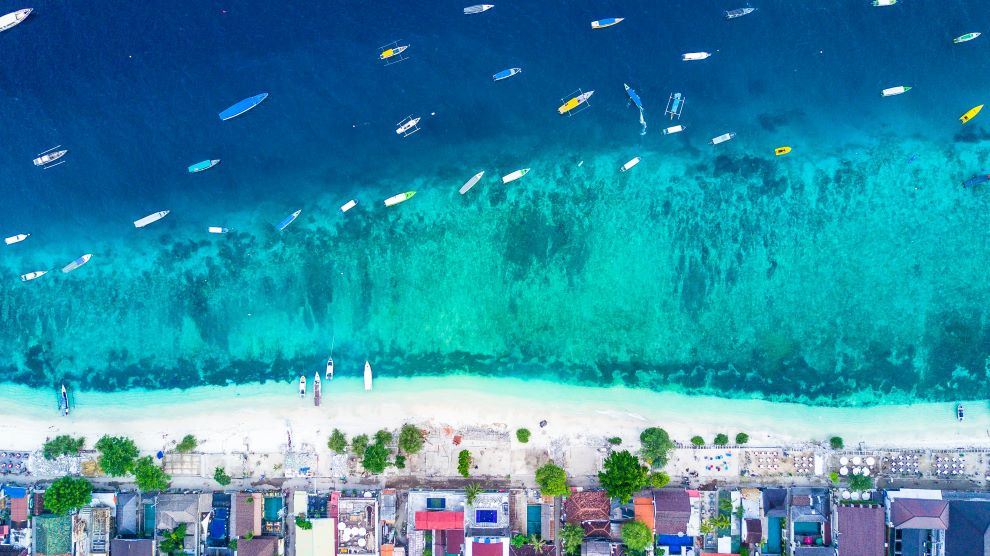International training programme marine spatial planning
Planning for a sustainable blue future in the Western Indian Ocean.
.jpg)
Sustainability, equity, good governance. Planning for a sustainable blue future in the Western Indian Ocean. Photo Jesse Hammer on Unsplash
The overall goal of this programme is to strengthen institutions engaged in Marine Spatial Planning in order to enable sustainable utilization of the marine resources in the WIO region.
The achievement of this goal is based on a “theory of change” and sets three corresponding objectives:
- Improved institutional capacity to collaborate across sectoral boundaries and to apply holistic goal-driven spatial planning;
- Enhanced institutional capacity for data and knowledge management implemented in marine spatial planning;
- Strengthened national and regional collaboration platforms for long-term networking, cooperation and development in ocean governance and ecosystem-based marine spatial planning.
Participating countries
The participating countries are Comoro Islands, Kenya, Madagascar, Mauritius, Mozambique, Somalia and United Republic of Tanzania.

The intervention is carried out as a number of training programmes, one following the other, with a new batch of participants for each programme. At the end of each programme, participants are expected to have gained new knowledge, understanding and strengthened self-confidence in relation to marine spatial planning; integrated approaches; and organisational change processes. Organisations participating more extensively in the whole intervention (i.e. across several programmes) will have a great opportunity for institutional strengthening, and actively promote sustainability, equity, and good governance in the planning and implementation of a prosperous sustainable blue economy in the Western Indian Ocean.
Key values
The ITP MSP development goal and the three programme objectives corresponds with certain key values guiding the whole ITP intervention. Those values are formulated as key MSP principles that direct programme activities towards marine spatial planning which is environmentally sustainable, economically favourable and socially balanced and based on good governance.
Our key MSP principles are:
- Sustainability
A MSP process that preserves a healthy ocean by maintaining and improving ecosystem services, while at the same time allowing for a responsible exploration and use of natural resources. - Equity
MSP has a role to play in supporting the most vulnerable and needing groups who depend directly or indirectly on the marine resources. The planning process needs to place particular emphasis on groups who are most vulnerable, stand to be most disadvantaged, or whose values, benefits, experiences and knowledge have been, or risk being, marginalized in MSP. - Good governance
MSP that is participatory, accountable, transparent, responsive, effective and efficient, inclusive and follows the rule of law. MSP processes assure that corruption is minimized, and that it is responsive to present and future needs of society.
Contents
The program involves five types of capacity building activities:
- Webinars
- Change module and change projects
- Regional workshops
- Ocean storytelling
- Specialisation blocks
Programme structure
The training programme consists of five compulsory phases. The evolution of an organisational Change Project (CP) constitutes a major role, binding all phases together.
- Phase 1 – ITP start-up (2 months)
- Phase 2 – Regional workshop in Mozambique (2 weeks)
- Phase 3 – Change Project Development (5 months)
- Phase 4 – Regional workshop in WIO region (TBD) (2 weeks)
- Phase 5 – Implementation Continues (5 months)
Organisers
Swedish Agency for Marine and Water Management (SwAM)
SwAM is the Swedish agency responsible for management of fisheries and aquatic environments. Core responsibilities include fisheries, marine pollution, hydropower reform, marine conservation, aquatic monitoring, facilitation of research and MSP. International work at SwAM mainly consist of three pillars: international conventions for biodiversity and research; bilateral collaboration (with South Africa, China, Russia, Brazil, Vietnam and East Africa); and capacity building for development.
The World Maritime University (WMU)
WMU was founded in 1983 by the International Maritime Organization (IMO), a specialised agency of the United Nations, with a mission to be the world centre of excellence in postgraduate maritime and oceans education, professional training and research, while building global capacity and promoting sustainable development.
Swedish Geological Surveys (SGU)
The Geological Survey of Sweden – SGU – is the expert agency for issues relating to bedrock, soil and groundwater in Sweden. SGU surveys and gathers knowledge about the sea bed and its structure. Knowledge of the sea bed’s physical characteristics, status, processes, content of environmental toxins and nutrients, and an understanding of the factors that affect it, play an important part in the work to map the environment and the conditions for blue growth.
Nairobi Convention Secretariat (NCS)
NCS is the secretariat of Nairobi Convention, since 1985 a partnership between governments, civil society and the private sector for a prosperous WIO region with healthy rivers, coasts and oceans. NCS has exclusive expertise, experience and political mandate and by such provides the natural entry point into ocean governance and MSP in the region.
Western Indian Ocean Marine Science Association (WIOMSA)
The Western Indian Ocean Marine Science Association (WIOMSA) was established as a regional, non-profit, membership organization in 1993 and registered in Zanzibar, Tanzania in 1994 as a non-governmental organization. The organization is dedicated to promoting the educational, scientific and technological development of all aspects of marine sciences throughout the Western Indian Ocean (WIO) with a view toward sustaining the use and conservation of its marine resources.
NIRAS International Consulting (NIC)
NIC is one of Europe’s larger development consulting actors working with donor-funded projects on four continents in more than 50 developing and emerging economies. We offer tailor-made solutions and transfer skills that help reduce poverty through e.g. activities facilitating inclusive economic growth, promoting equitable societies and improved health, and mitigating climate change. Our expertise covers the entire development agenda, including key areas such as governance issues, democracy and human rights, gender equality, water, agriculture, marine, forestry, land administration, climate change, employment and health. NIRAS has a strong expertise in implementing Sida-financed ITPs within different fields of development.



